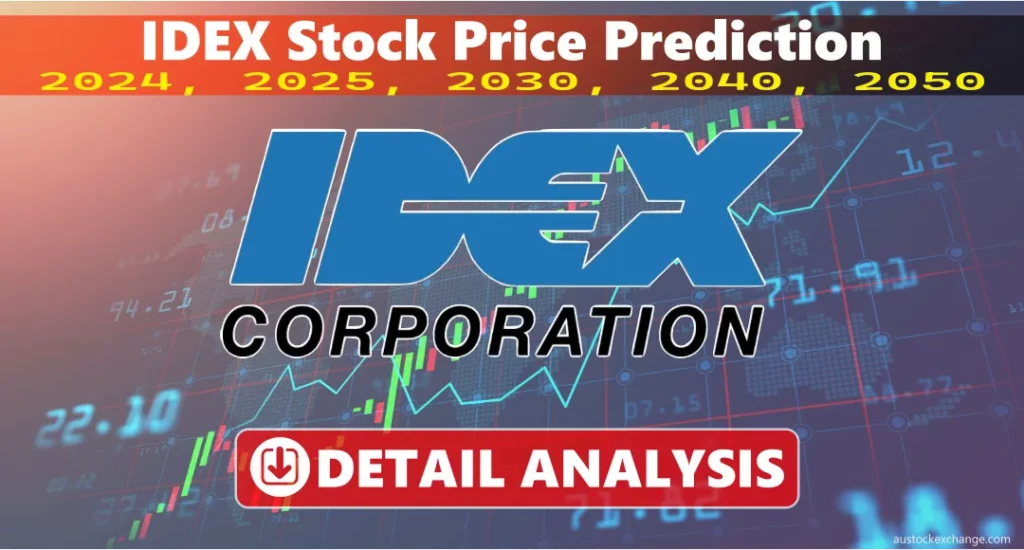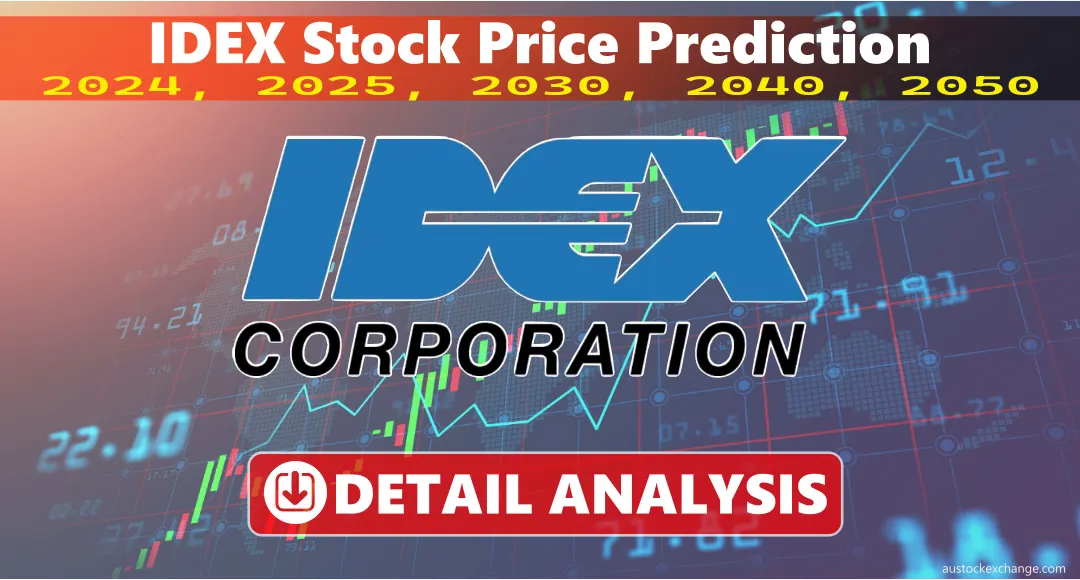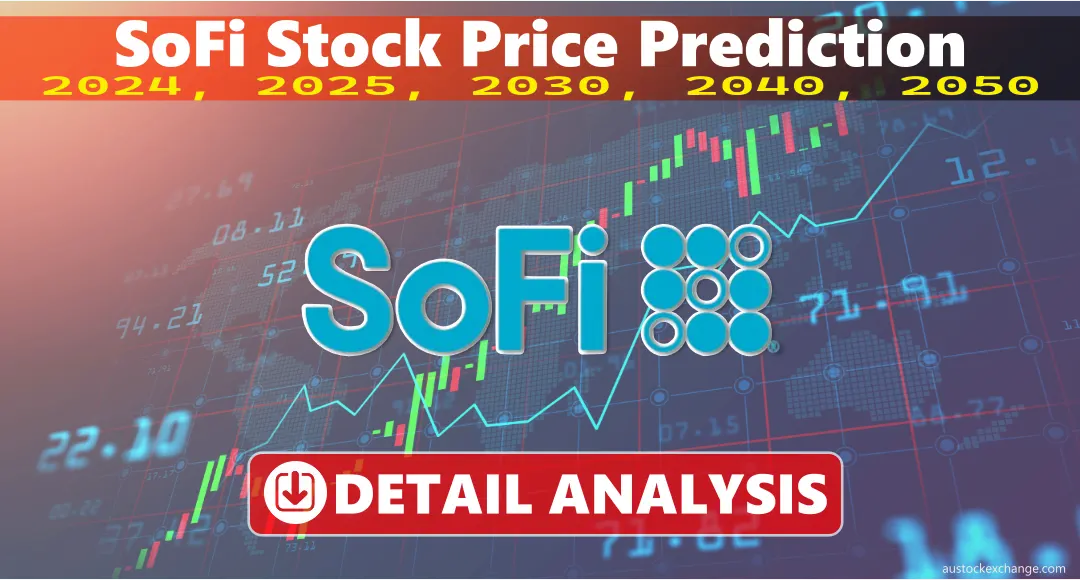IDEX Stock | Stock Price Prediction 2025 – 2050 (Detailed Analysis)
Ideanomics Inc. (NASDAQ: IDEX) is attracting investors in the fast-changing electric vehicle (EV) and sustainable mobility sector. Ideanomics, a worldwide corporation encouraging commercial electric vehicle adoption and sustainability, offers a unique investment opportunity in the EV market.
This article analyzes IDEX stock’s development potential and predicts stock prices for 2024, 2025, 2030, 2040, and 2050.
What is Ideanomics Inc. NASDAQ: IDEX?
New York City-based Ideanomics Inc. is a worldwide electric car and fintech startup. The firm accelerates commercial electric vehicle adoption through its subsidiaries and business areas and supports a sustainable future. Ideanomics provides automotive finance, EV charging infrastructure, and transportation technology.
IDEX Stock Price Prediction 2025
In 2025, its stock price would be $238, as per our analysis.
By our prediction, its stock price would be between $137 to $238 in 2025.
| Year | Minimum Price ($) | Maximum Price ($) |
| 2025 | $137 | $238 |
| Month | Minimum Price ($) | Maximum Price ($) |
| January | $204 | $226 |
| February | $190 | $221 |
| March | $176 | $198 |
| April | $150 | $200 |
| May | $145 | $208 |
| June | $137 | $213 |
| July | $142 | $218 |
| August | $159 | $220 |
| September | $175 | $222 |
| October | $187 | $228 |
| November | $192 | $234 |
| December | $212 | $238 |
IDEX Stock Price Prediction 2026
In 2026, its stock price would be $336, as per our analysis.
According to our prediction, its stock price would be between $212 and $336 in 2026.
| Year | Minimum Price ($) | Maximum Price ($) |
| 2026 | $212 | $336 |
Stock Price Prediction 2027
In 2027, its stock price would be $432, as per our analysis.
According to our prediction, its stock price would be between $328 and $432 in 2027.
| Year | Minimum Price ($) | Maximum Price ($) |
| 2027 | $328 | $432 |
Stock Price Prediction 2028
In 2028, its stock price would be $524, as per our analysis.
By our prediction, its stock price would be between $424 to $524 in 2028.
| Year | Minimum Price ($) | Maximum Price ($) |
| 2028 | $424 | $524 |
Stock Price Prediction 2029
In 2029, its stock price would be $625, as per our analysis.
By our prediction, its stock price would be between $516 to $625 in 2029.
| Year | Minimum Price ($) | Maximum Price ($) |
| 2029 | $516 | $625 |
IDEX Stock Price Prediction 2030
In 2030, its stock price would be $728, as per our analysis.
By our prediction, its stock price would be between $619 to $728 in 2030.
| Year | Minimum Price ($) | Maximum Price ($) |
| 2030 | $619 | $728 |
Stock Price Prediction 2040
In 2040, its stock price would be $1705, as per our analysis.
According to our prediction, its stock price would be between $1576 and $1705 in 2040.
| Year | Minimum Price ($) | Maximum Price ($) |
| 2040 | $1576 | $1705 |
Stock Price Prediction 2050
In 2050, its stock price would be $2872, as per our analysis.
By our prediction, its stock price would be between $2702 and $2872 in 2050.
| Year | Minimum Price ($) | Maximum Price ($) |
| 2050 | $2702 | $2872 |
Price Summary
| Year | Minimum Price ($) | Maximum Price ($) |
| 2025 | $137 | $238 |
| 2026 | $212 | $336 |
| 2027 | $328 | $432 |
| 2028 | $424 | $524 |
| 2029 | $516 | $625 |
| 2030 | $619 | $728 |
| 2040 | $1576 | $1705 |
| 2050 | $2702 | $2872 |
Is IDEX Stock Good to Buy? (Bull Case & Bear Case)
Bull Case:
- Ideanomics can benefit the worldwide demand for electric cars by delivering solutions that enable business EV adoption.
- Ideanomics has many income streams including car procurement, finance, charging infrastructure, and new technology.
- The firm has strategic connections with EV industry leaders, which might boost its growth and global reach.
- Ideanomics supports global climate change and carbon emission reduction initiatives by promoting sustainable transportation options.
Bear Case:
- Established automakers and startups compete in the EV business, which might hinder Ideanomics’ growth.
- Ideanomics may struggle to get funds for its development and expansion objectives as a tiny EV company.
- Ideanomics works in many categories and markets, which may raise execution risks and resource strain, affecting its strategic goals.
- Any negative changes to EV legislation and policies might hurt Ideanomics’ operations and profitability.
Key Details About IDEX
- Headquarters: New York City, New York, United States
- Founded: 2004
- CEO: Alfred Poor
- Employees: Approximately 500 (as of 2022)
- Revenue: $134.2 million (FY 2022)
- Net Loss: $120.7 million (FY 2022)
- Market Capitalization: Approximately $400 million (as of April 2024)
IDEX Financial (Balance Sheet)
- Total Assets: $266.4 million (FY 2022)
- Total Liabilities: $138.2 million (FY 2022)
- Total Equity: $128.2 million (FY 2022)
- Cash and Cash Equivalents: $26.1 million (FY 2022)
- Long Term Debt: $72.1 million (FY 2022)
Key Performance Indicators
- Revenue Growth (YoY): 45.6% (FY 2022)
- Net Loss: $120.7 million (FY 2022)
- Operating Margin: 90.0% (FY 2022)
- Return on Equity (ROE): 94.1% (FY 2022)
- Vehicles Delivered: 3,735 (FY 2022)
Comparison with Listed Peers
To assess Ideanomics’ position in the industry, compare its performance to other significant electric cars and related competitors. Compare Ideanomics’ important KPIs to its peers:
| Company | Market Cap | Revenue | Net Income/Loss | Operating Margin | ROE |
| Ideanomics (IDEX) | $400 million | $134.2M | $120.7M | 90.0% | 94.1% |
| Tesla | $621 billion | $81.5B | $12.6B | 17.2% | 30.6% |
| ChargePoint | $5.5 billion | $501.6M | $255.5M | 35.6% | 88.4% |
| Blink Charging | $556 million | $46.7M | $93.4M | 85.9% | 103.0% |
Positive & Negative Factors to Invest in IDEX

Positive Factors:
- Ideanomics can benefit the worldwide demand for electric cars by delivering solutions that enable business EV adoption.
- Ideanomics has many income streams including car procurement, finance, charging infrastructure, and new technology.
- The firm has strategic connections with EV industry leaders, which might boost its growth and global reach.
- Ideanomics supports global climate change and carbon emission reduction initiatives by promoting sustainable transportation options.
Negative Factors:
- Established automakers and startups compete in the EV business, which might hinder Ideanomics’ growth.
- Funding Issues: Ideanomics may struggle to get funds for its development and expansion objectives as a tiny EV company.
- Ideanomics works in many categories and markets, which may raise execution risks and resource strain, affecting its strategic goals.
- Any negative changes to EV legislation and policies might hurt Ideanomics’ operations and profitability.
Conclusion
Ideanomics Inc.’s stock is a unique investment in the fast-growing electric car and sustainable transportation areas. The firm is well-positioned to benefit from the worldwide movement toward sustainable transportation solutions with its diverse portfolio and concentration on commercial EV adoption.
Before investing, investors should weigh the bull and bear arguments, the company’s financial performance, and industry trends. Investors must weigh the risks and advantages of IDEX, a forward-thinking corporation.








